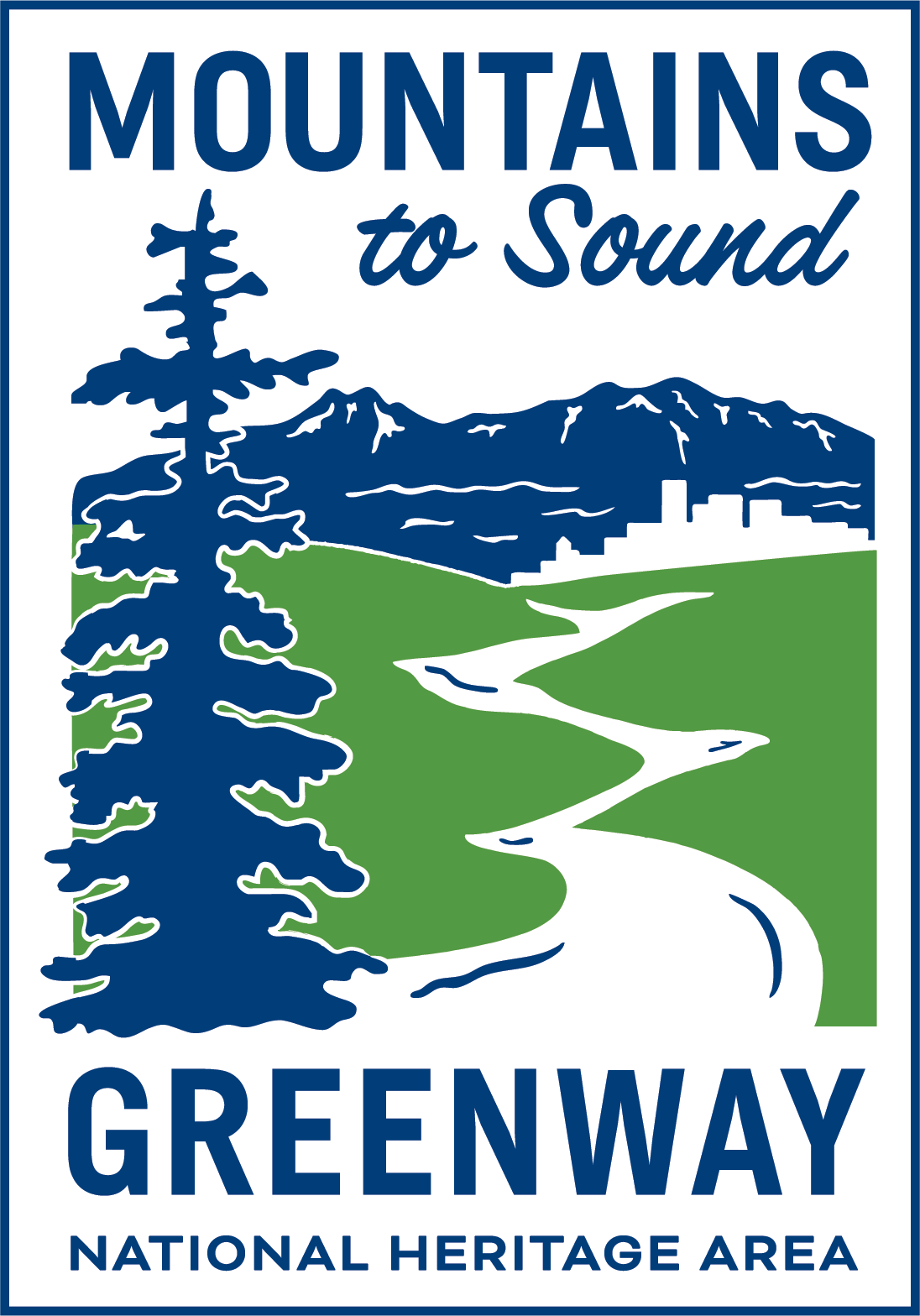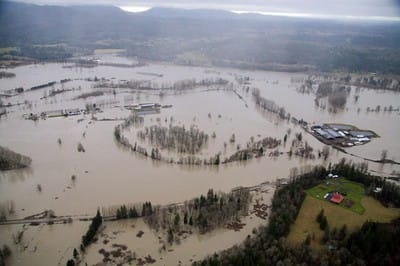Fish, Farm, Flood Citizen Advisory Committee
“Find a way to concurrently strengthen agriculture, restore salmon habitat, and reduce flood impacts in the Snoqualmie Valley.” This is the highly complex task that has been put before the Fish, Farm, Flood citizen advisory committee mandated by King County Council and overseen by King County Water and Land Resources Division (WLRD).
River floodplains contain King County’s most valuable agricultural soils and are also the places where many of the most important salmon habitat projects need to occur. As a result, some salmon recovery, farming and flood risk reduction projects are in essence competing for the same real estate, resulting in conflict. In an effort to work collaboratively to find solutions, King County Council passed Comprehensive Plan Policy R-650 in November 2012 saying:
“Aquatic habitat restoration projects, floodplain restoration projects and projects under King County’s mitigation reserves program in an Agricultural Production District shall be evaluated through a collaborative watershed planning process with the goal of maintaining and improving agricultural viability, improving ecological function and habitat quality, and restoring floodplains through integrated, watershed-wide strategies.”
The Snoqualmie Valley was chosen to be the pilot area for this task force, which started meeting in November 2013, and is made up of farmers, fish and flood experts and includes representatives from non-profits, the Tulalip and Snoqualmie Tribes, the city of Duvall, the Department of Ecology and King Conservation District. The group is working to find creative solutions to the very complex issues surrounding agriculture, fish and flooding in the Snoqualmie Valley.
-

Full Circle Farm
Examples of potential solutions include harvestable plantings along streams, to generate revenue for farmers from conservation actions, and converting non-farm land to agricultural use to offset losses of acreage to habitat restoration. At the end of this process the group will provide the King County Executive and Council their recommendations. “However daunting this task may be, great credit should be given to King County for establishing and supporting this process to find creative solutions for critical and often conflicting issues in our region” says Cynthia Welti, Greenway Trust’s Executive Director.
On April 3rd a public meeting was held in Preston to provide the community an update on the process and allow an opportunity for comments. The community raised a number of concerns at the public meeting, including erosion that is eating away at some farm fields, and a concern that the group would not address the issue of failing drain tiles. The most resounding statement; however, seemed to be that the farmers want to ensure their feedback is heard through this process. John Taylor, Deputy Director of WLRD, said “whatever it takes we will make sure that you are able to give input, even if that means extending this process.” Currently, the task force is hoping to be able to finish up this process by the end of the year.






